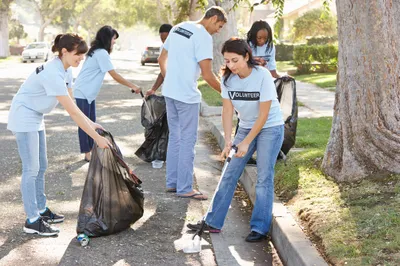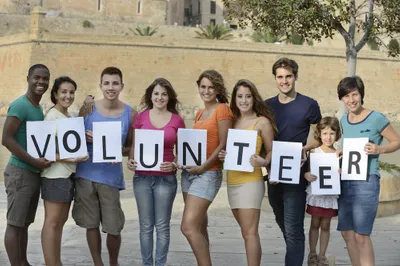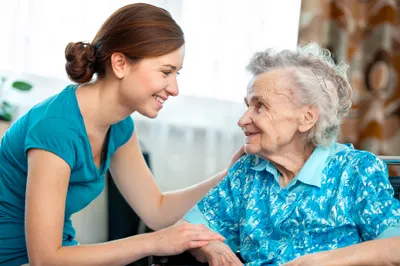News of Nelson Mandela’s death has saddened the world. The anti-apartheid icon and South Africa’s first black president, altruistically guided the peaceful transition from white-only rule in his country and left a lasting impression of equality and peace worldwide, passed this past Thursday at the distinguished age of 95. A long, happy, rewarding life well lived, which supports numerous medical studies that claim those who volunteer—to help the sick, the poor, the hungry, the abused, and the disenfranchised—live longer thanks to their unselfish acts.
It seems that the health effects of charitable work are so good for both body, mind, and soul that your graciousness actually reduces early mortality rates by approximately 22-percent vs. individuals who don’t act charitably.
Here are eight good reasons why helping others helps you live longer…
1. Volunteering Actually Makes You Healthier
Giving to others while improving your own health, altruistically of course, is a great benefit of your selfless work. For instance, participating in charity walks, marathons, doing chores for seniors, bike-a-thons, picking up trash, or walking homeless pets are all physical forms of exercise that help you stay in shape.
2. Charity Work Gives Us Purpose
The mental rewards associated with volunteering often give a sense of meaning to those who otherwise feel a bit helpless. For instance, seeing the differences made at a soup kitchen or women’s shelter may help volunteers feel a part of something bigger than themselves to enrich their sense of purpose in life overall.
3. Giving Builds Self Esteem
If you’ve ever lent a helping hand you already know that selfless acts build confidence. Committing to a group cause provides a natural sense of accomplishment, pride and identity. Boosting how you look at and feel about yourself—and improving your overall self-worth.
4. Helping Others Heals Everyone Involved
You might begin volunteer to help others. However, you will quickly realize that you’re also helping yourself. Charity work is a two-way street, and studies back up that claim with findings that show giving helps the giver actually overcome grief (i.e., the loss of a spouse).
5. Giving Boosts Mood
A study out of England’s University of Exeter Medical School examined groups of volunteers and found that those with a giving spirit were less prone to depression, and even lowered existing depression illness, thanks to the satisfaction, mood lift, and well-being gained through volunteer work.
6. Focusing on Others Instead of Yourself Lowers Stress
Medical research consistently shows that volunteering significantly lowers stress levels. For example, one British study asked volunteers with chronic illnesses to explain the self-benefits of giving to others. The majority agreed that focusing on the needs of others helped them manage the stress a chronic illness more effectively.
7. Charity Work Connects Us
Volunteers tend to form stronger and richer interpersonal relationships compared to those who don’t volunteer. After all, it’s not a stretch to say that giving time and energy to others creates strong bonds, a sense of connection, and community in working for a common cause.
8. Acts of Kindness Improve Immune Health
It’s nice to know that those selfless givers of time, energy, money, kindness, and effort reap some reward. In the case of volunteering—it’s tremendous immune health benefits. Scientists attest that giving to others has a positive effect on your immune system due to increased serotonin production. This brain chemical regulates mood, calms anxiety, and emits a “feel good” reaction that strengthens the function of the immune system.











